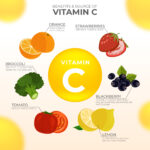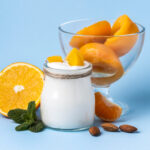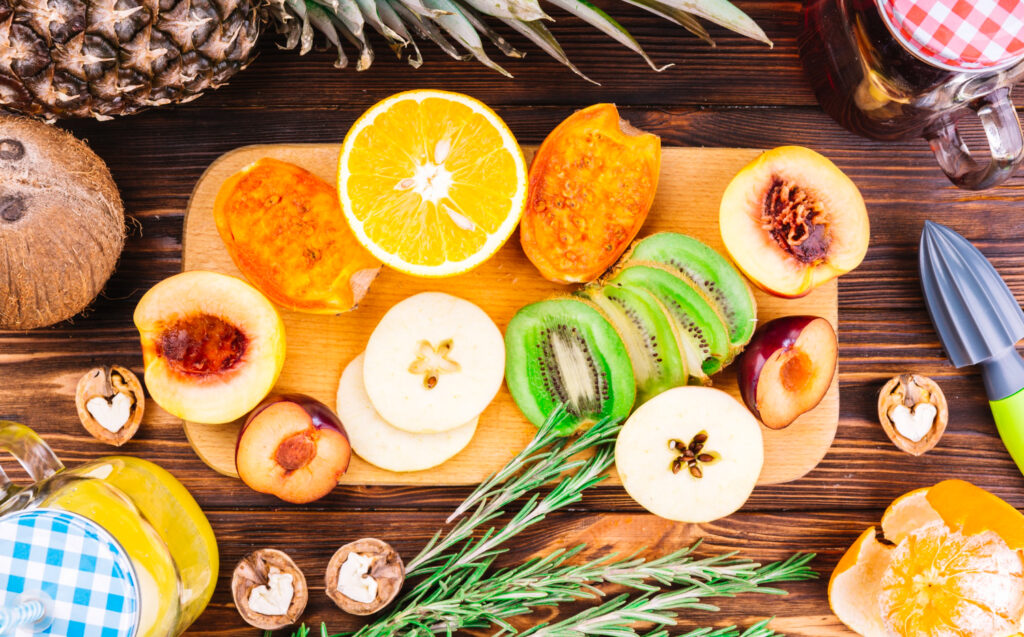
Overview
Vitamin D is one of the most essential nutrients your body needs for overall health and well-being. Often referred to as the “sunshine vitamin” due to its natural production in the skin when exposed to sunlight, vitamin D plays a crucial role in maintaining strong bones, supporting the immune system, and promoting a healthy mood. However, not everyone gets enough sunlight to meet their vitamin D needs, and dietary sources become essential for maintaining optimal levels.
In this comprehensive guide, we’ll explore the best food sources of vitamin D, why it’s important for your health, how much you need, and how to incorporate these foods into your diet.
Why Is Vitamin D Important?
Vitamin D is critical for several bodily functions:
- Bone Health: It helps the body absorb calcium and phosphorus, which are necessary for strong bones and teeth. Without enough vitamin D, bones can become brittle, thin, or misshapen, leading to conditions like osteoporosis or rickets.
- Immune Support: Vitamin D plays a role in strengthening your immune system, making it more efficient at fighting off viruses and infections.
- Mood and Brain Health: Research has linked vitamin D deficiency to mood disorders, including depression, particularly seasonal affective disorder (SAD), which occurs during periods of low sunlight.
- Cardiovascular Health: Some studies suggest that adequate vitamin D levels can reduce the risk of heart disease by lowering blood pressure and improving vascular health.
While the body can synthesize vitamin D through sun exposure, factors such as location, weather, skin type, and sunscreen use can reduce the amount of vitamin D your skin produces. For many, especially those in colder climates or with darker skin tones, obtaining sufficient vitamin D from sunlight alone can be challenging. This is where food sources become essential.
Top 8 Foods Rich in Vitamin D
To meet your daily vitamin D needs, here are some of the best foods you can incorporate into your diet:
1. Fatty Fish

Fatty fish is one of the richest natural sources of vitamin D. These types of fish are not only packed with omega-3 fatty acids, which are beneficial for heart health, but they also provide vitamin D in its most absorbable form—vitamin D3. Some of the best fatty fish options include:
- Salmon: A 3.5-ounce (100-gram) serving of wild-caught salmon can provide up to 500 IU of vitamin D, making it one of the best natural sources. Farmed salmon tends to have lower amounts, but it’s still a good option.
- Mackerel: Mackerel offers approximately 360 IU per 3.5-ounce serving. It’s a nutrient-dense option for those seeking a vitamin D boost.
- Tuna: Canned tuna, often a convenient and affordable choice, provides around 150 IU per 3-ounce serving
Related: Foods High in Vitamin A
2. Egg Yolks

Egg yolks are another excellent source of vitamin D. One large egg yolk contains about 40 IU of vitamin D. Free-range or pasture-raised eggs may contain even higher levels, as hens exposed to sunlight tend to produce eggs with more vitamin D. Eggs are a versatile and affordable way to increase your intake of this essential vitamin
3. Fortified Foods
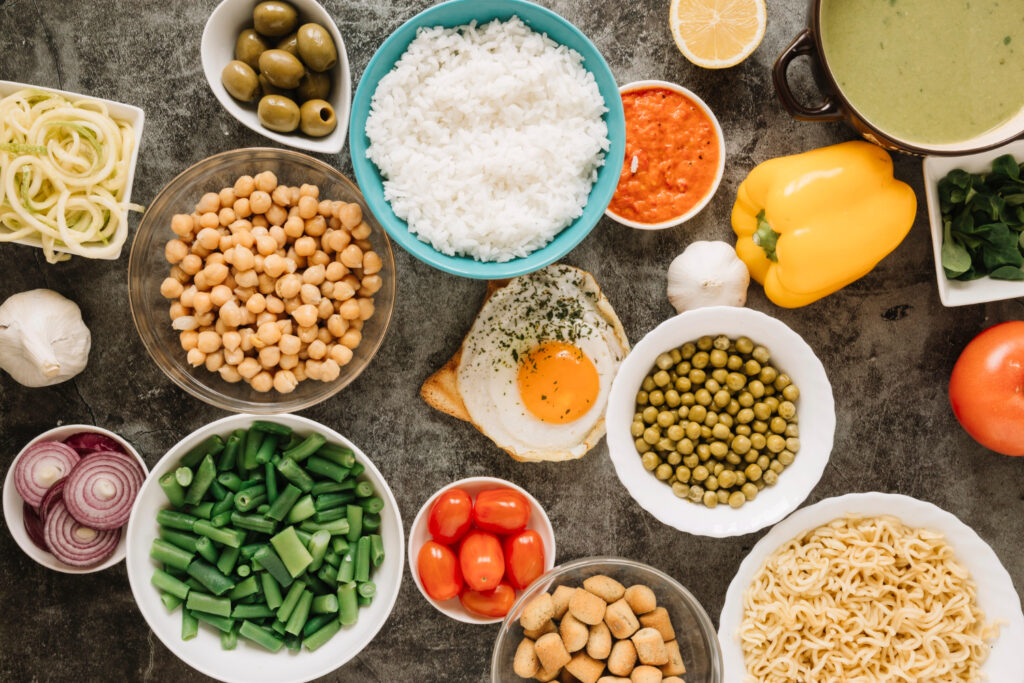
Fortification is a process where essential vitamins and minerals are added to foods. Many common foods are fortified with vitamin D, making it easier to meet daily requirements:
- Fortified Milk: Most cow’s milk is fortified with about 100 IU of vitamin D per cup. This is a simple and reliable way to get more vitamin D, especially for those who don’t consume fish or eggs.
- Plant-Based Milk Alternatives: Almond milk, soy milk, and oat milk are often fortified with vitamin D, making them great options for vegans or those who are lactose intolerant.
- Fortified Cereals: Some breakfast cereals are fortified with vitamin D, offering between 40 and 100 IU per serving. Be sure to check the nutrition label to confirm the vitamin D content.
4. Mushrooms
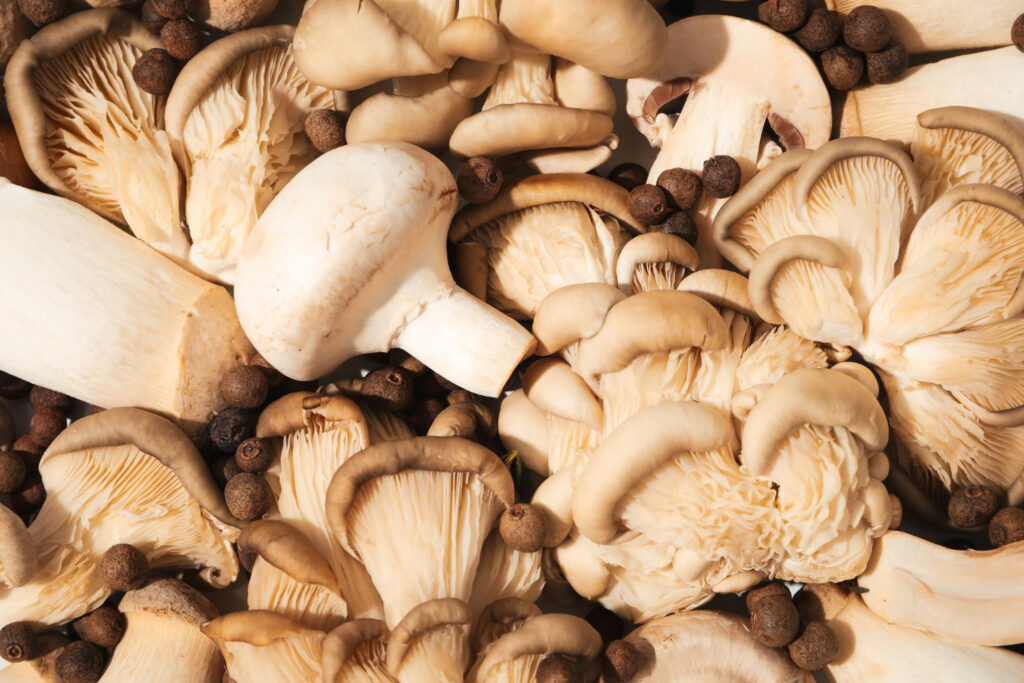
Mushrooms are the only plant-based source of vitamin D. Certain mushrooms, such as maitake and shiitake, naturally produce vitamin D2 when exposed to sunlight or ultraviolet (UV) light. While vitamin D2 may not be as potent as vitamin D3, it still helps raise blood levels of vitamin D. UV-exposed mushrooms can provide up to 400 IU per 3.5-ounce serving.
5. Cod Liver Oil
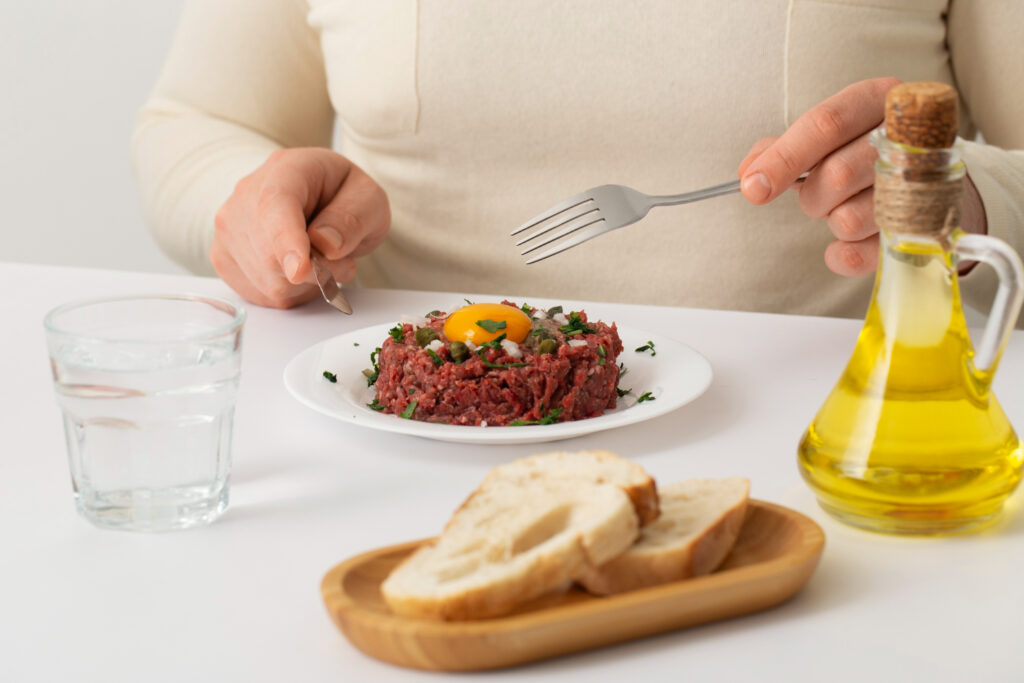
Cod liver oil is an excellent source of both vitamin D and omega-3 fatty acids. Just one tablespoon of cod liver oil contains more than 1,300 IU of vitamin D—well over the recommended daily intake for most people. While cod liver oil can be consumed directly or in capsule form, it’s important not to overconsume, as excessive vitamin D can lead to toxicity. Always consult a healthcare provider before starting any new supplements.
6. Cheese
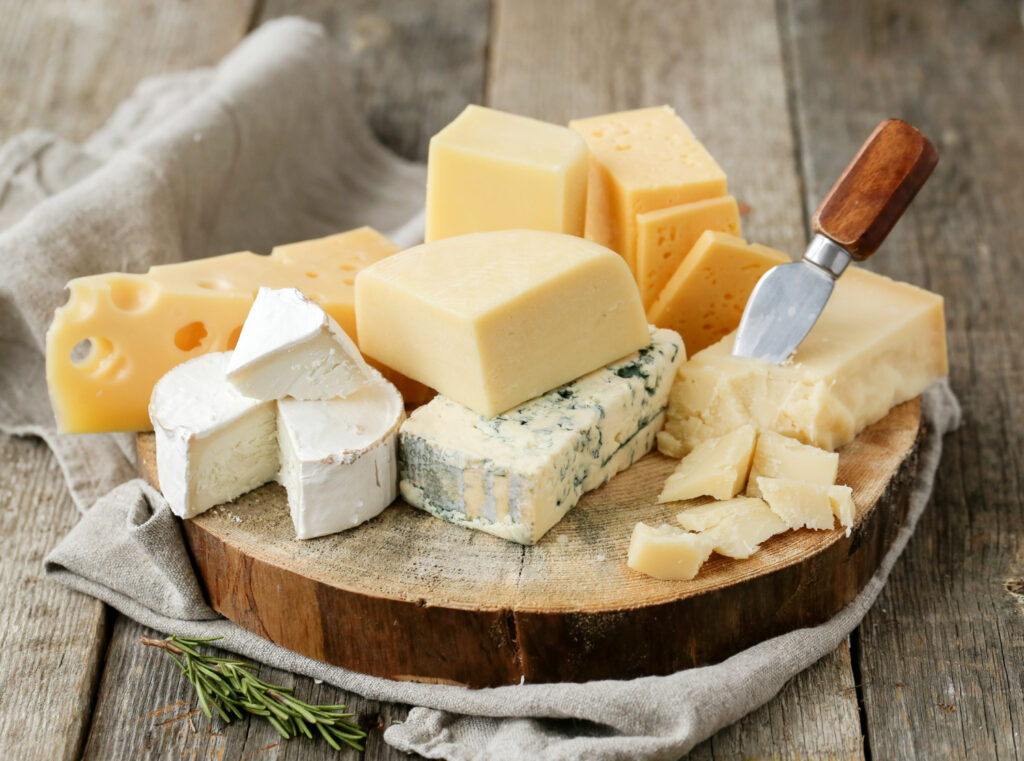
Cheese, especially varieties like Swiss and cheddar, contains small amounts of vitamin D. While not a major source, cheese can still contribute to your daily intake when consumed as part of a balanced diet. Additionally, cheese provides calcium, which works with vitamin D to promote bone health.
How Much Vitamin D Do You Need?
The recommended daily intake (RDI) for vitamin D varies depending on age, gender, and other health factors. Here’s a general breakdown:
- Infants (0-12 months): 400 IU per day
- Children and teenagers (1-18 years): 600 IU per day
- Adults (19-70 years): 600 IU per day
- Adults over 70 years: 800 IU per day
- Pregnant and breastfeeding women: 600 IU per day
If you have limited sun exposure or other risk factors for vitamin D deficiency, your healthcare provider may recommend increasing your intake or taking supplements. Blood tests can determine whether you are getting enough vitamin D.
Tips for Maximizing Vitamin D Absorption
To get the most out of the vitamin D in your food, consider these tips:
- Pair with Healthy Fats: Vitamin D is fat-soluble, meaning it is best absorbed when consumed with fat. Pair vitamin D-rich foods with healthy fats such as olive oil, avocados, or nuts to improve absorption.
- Balanced Nutrient Intake: Vitamins and minerals like magnesium, calcium, and vitamin K all work together to support the proper utilization of vitamin D in the body. Be sure to maintain a balanced diet rich in these nutrients
Risks of Vitamin D Deficiency
Vitamin D deficiency is more common than many people realize and can lead to several health issues, including:
- Bone Disorders: Deficiency can cause rickets in children and contribute to osteoporosis and osteomalacia in adults, resulting in weak or deformed bones.
- Weakened Immunity: Low levels of vitamin D have been linked to increased susceptibility to infections and autoimmune diseases.
- Mood and Cognitive Impairments: Lack of vitamin D has been associated with depression, particularly in the winter months when sunlight is limited.
If you suspect you have a vitamin D deficiency, consult with a healthcare provider for appropriate testing and treatment options.
The Takeaway
Vitamin D is vital for maintaining strong bones, supporting your immune system, and promoting overall well-being. While sunlight is the most natural source, incorporating foods rich in vitamin D—such as fatty fish, egg yolks, fortified foods, mushrooms, and cod liver oil—into your diet can ensure you meet your daily needs. By making these nutrient-dense foods a regular part of your meals, you can support your body’s vitamin D levels and promote long-term health.
Consult with a healthcare provider before making any significant changes to your diet or beginning any supplement regimen, especially if you suspect a vitamin D deficiency
Frequently Asked Questions
- Why is vitamin D important for my health?
Vitamin D is essential for maintaining strong bones by aiding calcium absorption, supporting immune function, regulating mood, and promoting heart health. Deficiency in vitamin D can lead to issues like weakened bones, a higher risk of infections, and mood disorders. - What are the best natural sources of vitamin D?
Some of the best natural sources of vitamin D include fatty fish (like salmon, mackerel, and tuna), egg yolks, mushrooms, and cod liver oil. Fortified foods like milk, plant-based milk, and cereals also provide vitamin D. - How much vitamin D do I need daily?
The recommended daily intake varies by age:
- Infants (0-12 months): 400 IU
- Children and adults (1-70 years): 600 IU
- Adults over 70 years: 800 IU
- Pregnant and breastfeeding women: 600 IU
- Can I get enough vitamin D from sunlight alone?
While sunlight helps your skin produce vitamin D, factors like geographical location, weather, skin type, and sunscreen use can limit how much you produce. It’s recommended to include dietary sources or supplements to meet your daily needs, especially during winter or in areas with limited sun exposure. - What happens if I don’t get enough vitamin D?
A deficiency in vitamin D can lead to weakened bones (osteoporosis or rickets), an increased risk of infections, mood disorders like depression, and fatigue. It’s important to monitor your intake and consult with a healthcare provider if you suspect a deficiency.



